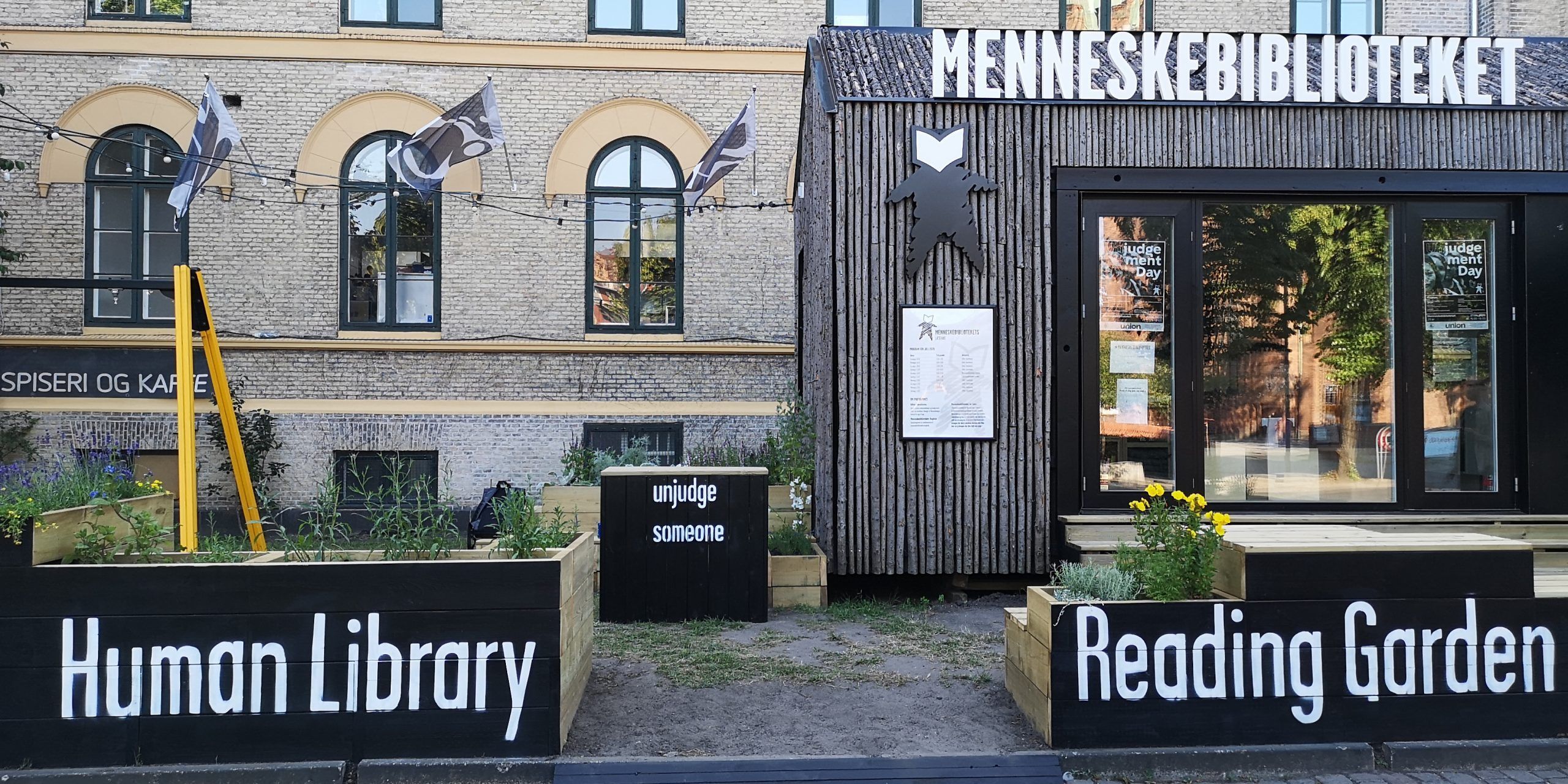Most of us know the feeling of getting lost in a good story: that experience when a character etches themselves so deeply into our psyche that we find ourselves thinking about their stories long after the book is finished.
Neuroscientists claim that we can actually improve our empathic response through reading fiction. When we experience other people’s lives – whether it is gender, sexuality, ethnicity, culture or profession – we are unwittingly putting ourselves into someone else’s shoes, and this improves empathy.
Everyone has a book in ‘em
But what if books could talk? This is the experience one gets at the Human Library in Copenhagen, which can be found at Nørre Allé 7 in Nørrebo.
Founded in Copenhagen in 2000, it now has a presence in over 80 countries worldwide and I had been wanting to visit it for some time. Denmark has been voted as one of the happiest countries in the world for over 40 years in a row, and one of the reasons is its focus on empathy in parenting and education. This positively affects its whole society.
The Human Library is a great example of how exercising empathy at any age works. It offers a rare opportunity to check out real people’s stories and engage in dialogue you might never have an opportunity to, or the courage to, otherwise. The volunteers are – quite literally – open books.
Many booked out already
I didn’t know what to expect when I arrived. There was a chalkboard hanging on the wall with ‘books of the day’ scribbled in white. The list included ‘Child Bride’, ‘Paranoid Schizophrenic’, ‘Giving up a Child’, ‘OCD’ and several others.
Many of the titles had a star next to their name, which meant the book was already checked out. I could see people paired off on benches and chairs ‘reading’ their books intently.
It’s possible to check out a title for 30 minutes and ask them anything you want to know. Like any novel you decide to invest time in and read, I wasn’t sure which one to choose. The books, as they are referred to, walk to-and-fro with black t-shirts saying “Unjudge someone” on the front and “Human Library” across the back.
Read ‘em like a book … or not
Several hours and five life-stories later, I left the library feeling opened and fulfilled in a way that is difficult to describe. I took a long walk to digest what I had learned and to contemplate the concept.
The reality is so much of our lives are spent through our social media feeds. These often serve as echo chambers that reverberate back to us our already-held values and beliefs. They reconfirm our confirmation biases rather than expose us to new ideas to help us come to new conclusions about people.
If you want to improve your capacity for empathy this year, I highly recommend checking out the Human Library. Perhaps the biggest plot twist for me wasn’t about the stories themselves, but how much I’d misread them going in.
I guess the lesson is the classic saying ‘You can’t judge a book by its cover’.


